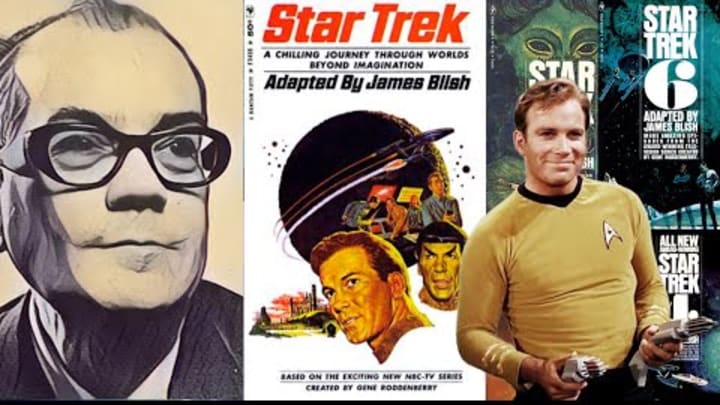Both sci-fi readers and Star Trek fans might be familiar with the name James Blish. Most know him as a prolific writer with strong ties to the Star Trek book universe; however, his career expands far beyond the franchise and traces back to some of the earliest science fiction literature of the 20th century.
Blish's early life
Born in 1921 in New Jersey, Blish grew to attend Rutgers University and earned a degree in microbiology in 1942. He dabbled in several different careers, including military service and zoology, but writing science fiction was his true passion and he left other fields behind after choosing to write for a living. This choice, a difficult and risky one for any writer, would lead to Blish writing award-winning works.
Blish in the 1950s
The 1950s found Blish as a prolific writer with many of his sci-fi stories featured across a variety of magazines during that decade. He topped off the 1950s by winning the Hugo Award for his novel, A Case of Conscience, which included themes of religious conversion, the question of Christianity, and its possible impact on alien races.
The Star Trek book years
Blish left America for England in the early 1960s, where he continued to write and produce different science fiction pieces, including novels such as Dr. Mirabilis in 1964. Then, in 1967, Bantam Books hired him to create novels out of Star Trek scripts, some of which included missing scenes and concepts not aired on television. Like most fiction writers who need to take other work to support themselves, Blish agreed to the project, even though he’d never seen the series, as it never aired in England.
In 1970, Blish wrote an original Star Trek novel called Spock Must Die! He later admitted the story was a throwaway piece and spoke about writing pieces that expanded on the series episodes that featured Harry Mudd, but sadly, he died of lung cancer before he could complete them. His wife, J.A. Lawrence, would adapt and release both in 1978, after Blish’s death, under the title Mudd’s Angels.
James Blish’s contributions to science fiction and Star Trek do not go unnoticed today. The series of novelizations still circulates, and some are highly prized by collectors of physical media. His writing legacy is assured across the genre, and future readers who enjoy science fiction are sure to learn his name.
